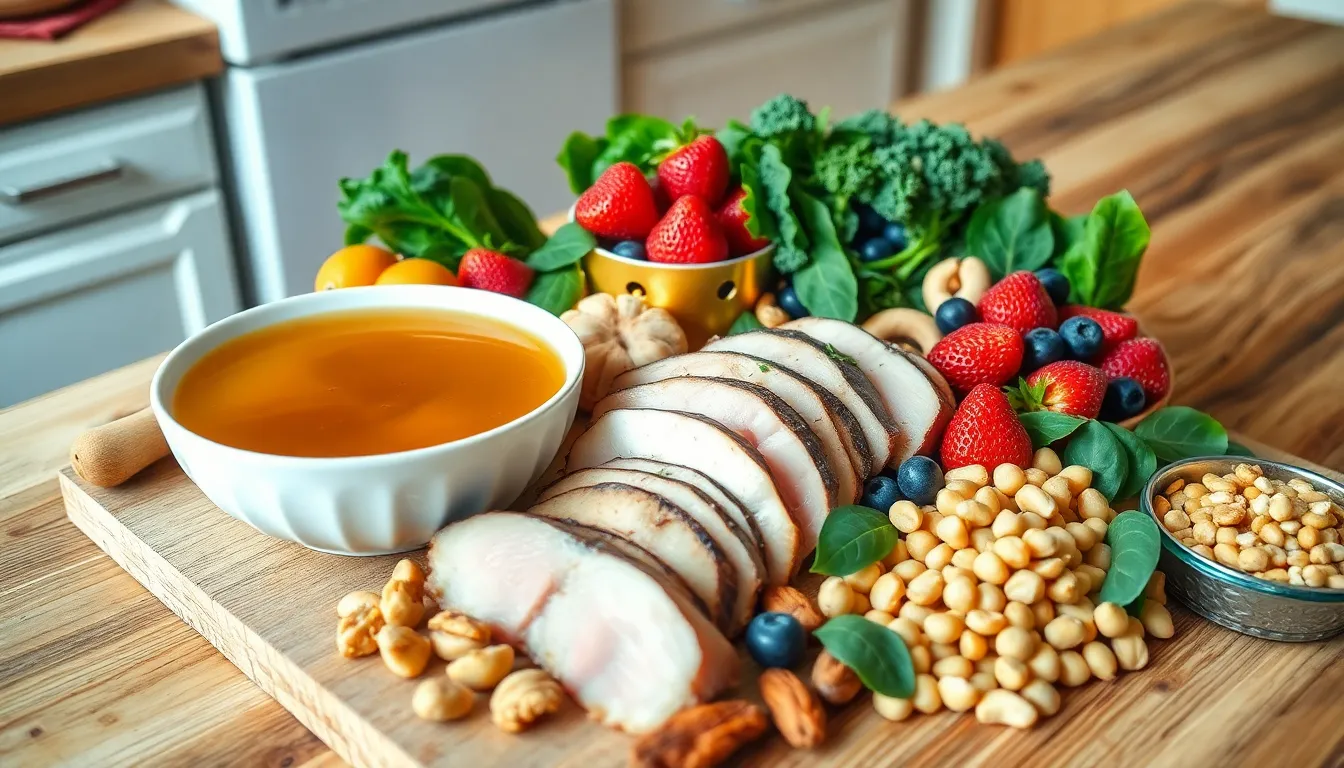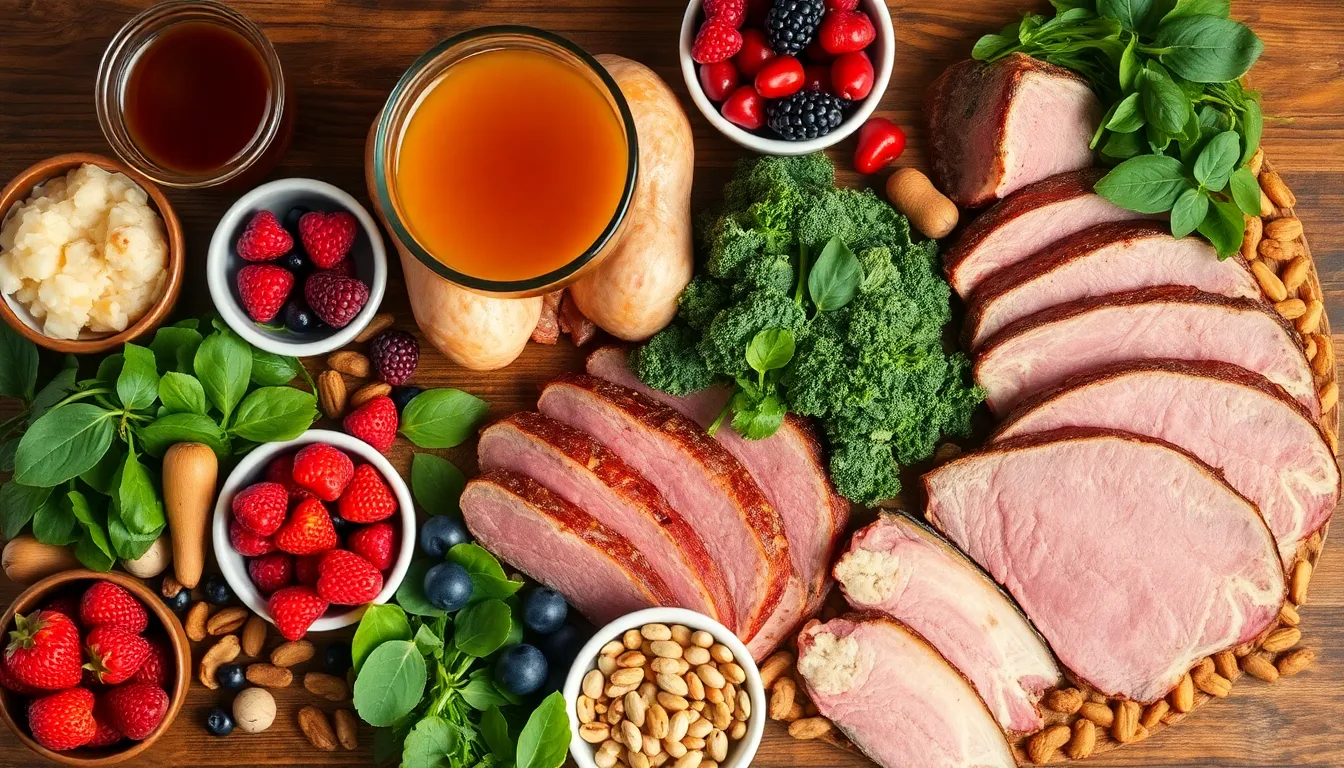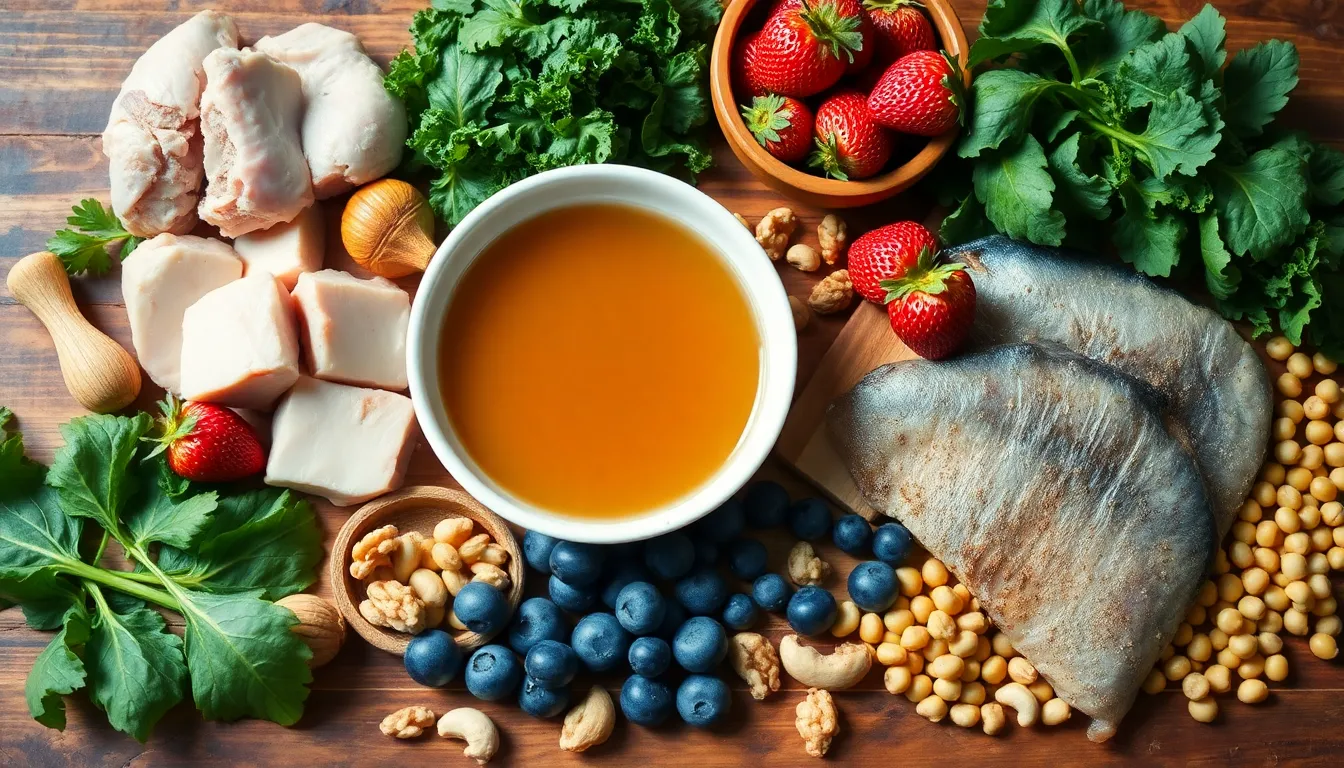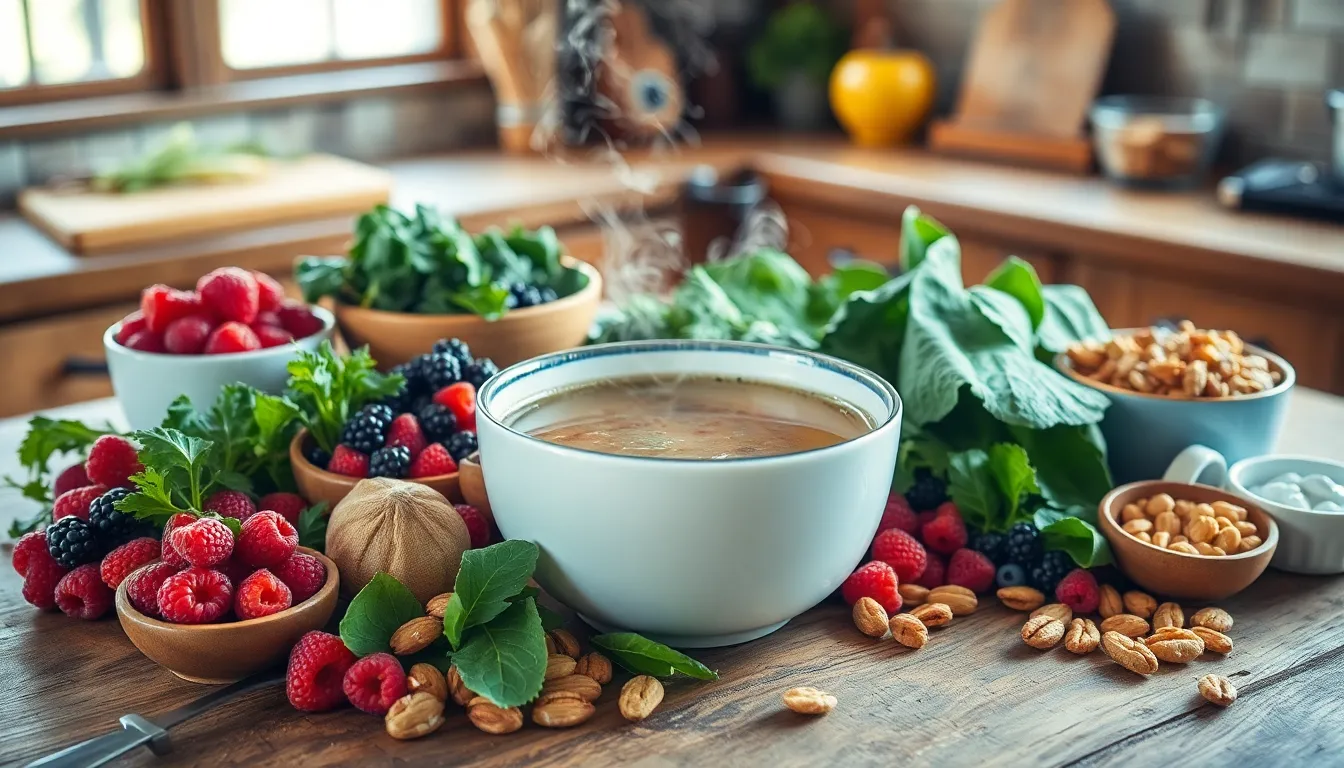In a world obsessed with youthful skin and vibrant hair, collagen is the secret ingredient everyone’s raving about. This powerhouse protein is like the glue that holds our bodies together, but as time marches on, our natural collagen production takes a nosedive. Enter the heroes of the culinary realm: collagen-rich foods. They’re not just for fancy diets or Instagram influencers; they’re the tasty treats that can help restore that youthful glow while you chow down.
From bone broth that warms the soul to vibrant fruits and veggies that pack a punch, incorporating these delicious options into daily meals can be both fun and beneficial. So why not indulge in a little culinary adventure? After all, who wouldn’t want to eat their way to a more youthful appearance? Let’s dive into the scrumptious world of collagen-rich foods and discover how they can transform not just your plate but your overall well-being.
Table of Contents
ToggleImportance Of Collagen-Rich Foods
Collagen-rich foods play a crucial role in maintaining overall health. These foods not only support beauty but also contribute significantly to joint and skin health.
Benefits For Skin Health
Collagen promotes skin elasticity, hydration, and overall appearance. Incorporating collagen-rich foods, like berries and leafy greens, directly supports youthful skin. Bone broth provides amino acids essential for skin repair. Studies indicate that collagen supplementation may reduce wrinkles and dry skin, enhancing the skin’s texture. Foods rich in vitamin C, such as oranges and strawberries, can aid in collagen synthesis, further improving skin health. Regular consumption leads to noticeable improvements in skin hydration and elasticity.
Role In Joint Support
Collagen also plays a vital role in joint support. It helps maintain cartilage, which cushions joints. Regular intake of collagen-rich foods, like fish and chicken, can improve mobility and reduce discomfort. Research suggests that collagen supplementation can mitigate joint pain, especially in individuals with osteoarthritis. Furthermore, combining collagen with antioxidants from fruits and vegetables enhances joint health and reduces inflammation. Including collagen-rich foods in the diet contributes to better joint function and overall movement comfort.
Sources Of Collagen-Rich Foods



Collagen-rich foods come primarily from animal and plant sources. These options support skin and joint health effectively.
Animal-Based Sources
Animal-based sources offer concentrated collagen. Bone broth, made by simmering bones and connective tissues, provides abundant collagen and essential amino acids. Chicken, particularly dark meat and skin, supplies substantial collagen. Fish, especially the skin and scales, also contributes to collagen intake. Additionally, beef and pork contain collagen-rich cuts like tendons and ligaments. Eggs are noteworthy for their high amino acid content, essential for collagen synthesis. Including these foods in the diet can significantly enhance collagen levels.
Plant-Based Alternatives
Plant-based alternatives provide nutrients that support collagen production. Berries like strawberries and blueberries contain antioxidants that protect collagen from damage. Leafy greens such as spinach and kale are rich in vitamins A and C, crucial for collagen synthesis. Nuts, particularly walnuts and cashews, offer healthy fats that aid skin health. Legumes, including lentils and chickpeas, provide protein and amino acids that contribute to collagen formation. Certain grains like quinoa are rich in lysine, an amino acid vital for collagen production. Incorporating these plant-based options leads to enhanced well-being.
How To Incorporate Collagen-Rich Foods Into Your Diet
Incorporating collagen-rich foods into daily meals enhances skin and joint health. Several recipes and ideas simplify this process.
Recipes And Ideas
Bone broth stands out as a versatile base for soups and stews. Smoothies benefit from collagen powder, which blends seamlessly with fruits and leafy greens. Salads can include shredded chicken or salmon for an extra collagen boost. Adding eggs to breakfast dishes provides essential amino acids while maintaining variety. Nutrient-dense snacks like trail mix featuring nuts and seeds contribute to collagen support. Experimenting with these options keeps meals enjoyable and nutritious.
Tips For Enhancing Collagen Absorption
Vitamin C significantly aids collagen absorption, making citrus fruits ideal additions. Incorporating leafy greens like spinach and kale maximizes nutrient intake. Foods rich in zinc, such as pumpkin seeds and chickpeas, also support collagen production. Staying hydrated ensures optimal skin health, so drinking plenty of water plays a key role. Additionally, avoiding excessive sugar and processed foods prevents collagen degradation. Limiting environmental toxins further protects existing collagen levels, promoting overall skin vitality.
Potential Drawbacks Of Collagen-Rich Foods
Collagen-rich foods offer various health benefits, but some drawbacks exist. Allergies pose a significant risk for individuals sensitive to certain collagen sources. For example, seafood or beef-based collagen may trigger allergic reactions in susceptible individuals.
Cost can be another concern. High-quality collagen supplements and specialized foods, such as bone broth, lead to higher grocery bills. The price may deter some people from incorporating these items into their diets regularly.
Digestive issues arise in some cases. People may experience gastrointestinal discomfort after consuming collagen supplements, particularly in large amounts. Maintaining moderation typically helps minimize discomfort.
Sourcing is also crucial. Not all collagen-rich foods come from sustainable, ethical sources. Choosing products with transparent sourcing practices benefits personal health and the environment.
Nutrient balance matters as well. Relying solely on collagen-rich foods can lead to a lack of variety in one’s diet. A diverse intake of vitamins and minerals from different food groups promotes overall well-being.
Limited scientific evidence specific to certain collagen-rich foods exists. While some studies show benefits, further research is needed to confirm the effectiveness of various sources for skin and joint health.
Yeast and collagen synthesis interaction may pose uncertainties. Some individuals may have dietary restrictions due to intolerance or preferences like veganism, making it difficult to consume animal-derived collagen.
Awareness of these potential drawbacks is essential when incorporating collagen-rich foods into one’s diet. Making informed choices ensures a balanced approach to obtaining this important protein.




